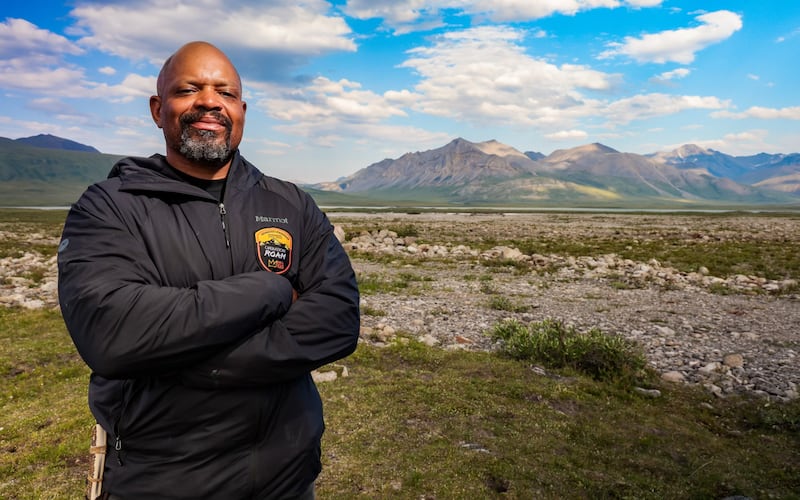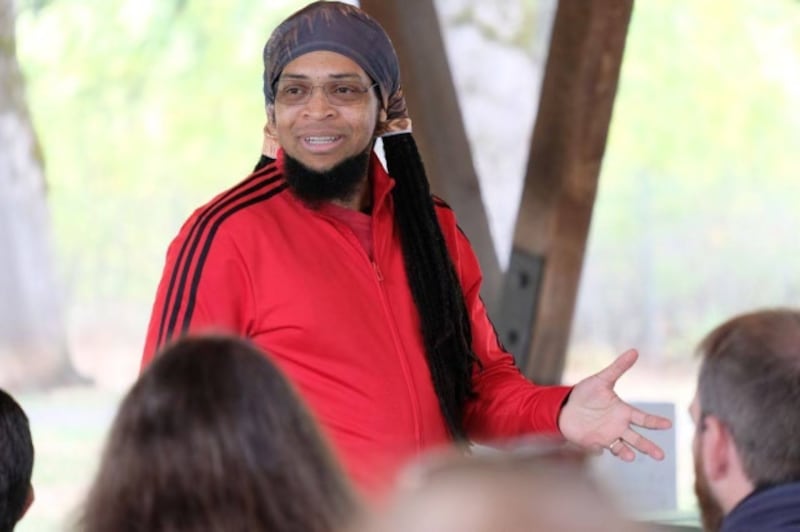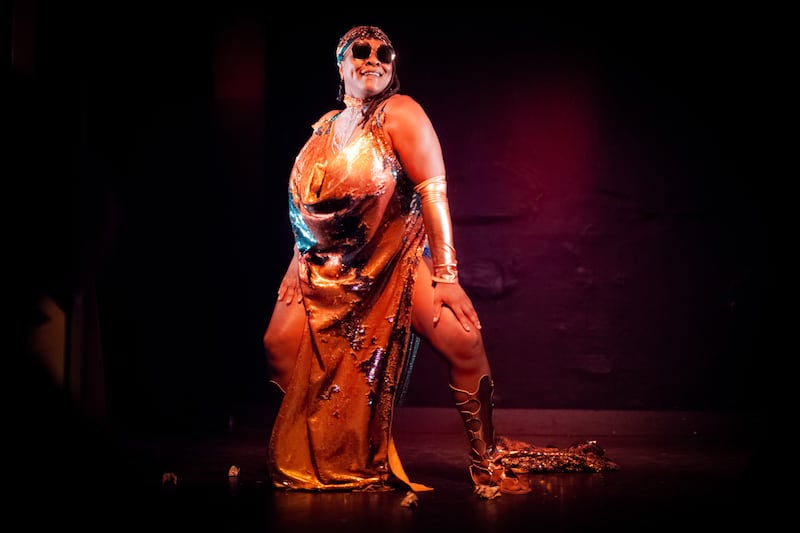During the early months of the pandemic in spring 2020—and no, nobody wants to think about that time, but try to dig deep for a few minutes—Moe Bowstern coped by posting poetic missives on her Instagram. Giant communal grocery runs, John Prine tributes, COVID bingo, it’s all on there. From March 2020 through July 2021, Bowstern addressed her online community, expanding to wildfires, Black Lives Matter protests, the Land Back movement, masking and vaccines.
Bowstern is now publishing paper versions of this pandemic-born social media daily digest, titled Good Night People of Earth. Bowstern has been creating zines for about 30 years, such as her “review” of cancer called How Are You? (Or: I Had Cancer for a Little While and It Was Hard) and multiple zines based on her years as a commercial fisherwoman.
Good Night People of Earth consists of 17 issues.
“It’s really epic, and I wanted to have a zine-release party, but I thought, how boring,” Bowstern says. “Nobody wants to hear about the pandemic. But we also haven’t grieved it.”
So tonight, Oct. 23, Bowstern is throwing that zine-release party at Black Water Bar on Northeast Broadway, but she’s inviting along a bunch of friends. It’s a variety show called Lore of the Lockdown, featuring 10 Portland artists and performers presenting the art they also made during COVID. Bowstern will emcee the show, plus invite the audience to write down random early pandemic dates and she will read those pages from the zines aloud.
“We all turned to our art and music and performance—those of us that didn’t turn to baking—to get through,” Bowstern says.
Here are a few acts to expect:

Mic Crenshaw
In 2020, Bowstern started working with rapper and activist Mic Crenshaw on a podcast called It Did Happen Here, along with producer and editor Erin Yanke. (They all knew each other from working at KBOO.) It Did Happen Here was about anti-fascist groups banding together after the 1988 murder of Ethiopian immigrant Mulugeta Seraw by three neo-Nazi skinheads in Southeast Portland. In 2023, the 11-episode podcast became a book of the same title.
The podcast “would have happened with or without the pandemic, but it opened up some space,” Crenshaw says.
At Lore of the Lockdown, Crenshaw will perform a poem he wrote in 2020. He sometimes misses the early pandemic, he says, especially the first 90 days when he didn’t go to work in person.
“I had time to reflect on some things in a way that felt more accessible than when I was working,” he says. “A lot of us did get to take a break and slow down, and it felt restorative.”
The poem, which is untitled, deals with similar topics of It Did Happen Here, including racism, violence and anti-fascist groups. An excerpt: “How is perpetual war prevailing wisdom?/Where the lynching failed they have jails and prisons.”

Desmond Spann
Prior to COVID, poet and musician Desmond Spann did vocals for a six-piece hip-hop, soul and funk fusion band called Speaker Minds. They broke up during the pandemic. With Spann’s performance outlet gone, he started to host freestyle rap meetups online as a way to connect with his community and have fun. Eventually, it took a form that Spann calls “growth rap.”
“The concept of growth rap was born and solidified in COVID because, kind of like most people, I was questioning like, OK, what really matters at a time like this?” Spann says.
He didn’t want to be a professional rapper or go on a worldwide tour, so why still rhyme? He realized the reason he’d been rapping the whole time was his “personal development and growth.” Also, to inspire the next generation: Spann taught language arts at Franklin High School for a decade, including three or four years teaching hip-hop literature. At the variety show, Spann plans to freestyle.
“It will be entertaining and people will enjoy it, but the growth is happening inside of me,” he says. “Hopefully, I can inspire people to pursue their own path of growth by doing something that is hard.”

Lolita von Honeydew La Roux
Experienced burlesque performer Lolita von Honeydew La Roux doesn’t mince words about early lockdown: “It was a real drag,” she says. “Burlesque is very interactive, and we couldn’t be in the venues doing the work performing….A lot of it went online. People were doing virtual shows and burlesque in their living rooms, and that wasn’t really my jam.”
After about a decade in the biz, Honeydew had been considering stepping away from burlesque for a while, so it seemed like a natural time to take a break.
Then the hot flashes began.
“I started going through menopause, and I was having hot flashes like a motherfucker,” she says. “It was ridiculous. I created an act that is about hot flashes.”
The resulting dance, titled “I’m Really Hot,” is play on the classic burlesque fan dance and is about six minutes long. And suddenly, she was back onstage, even after saying she was quitting.
“I’m 54, and I feel like that’s a little vintage-y for taking off my clothes,” Honeydew says. “But if anybody asks me to perform, I’ll probably still do it. So am I really retiring? I don’t know.”
SEE IT: Lore of the Lockdown at Black Water Bar, 835 NE Broadway, 503-281-0439, bar.blackwaterpdx.com. 7 pm Wednesday, Oct. 23. $5-$25.

